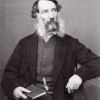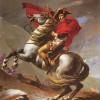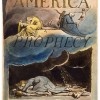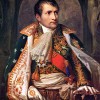
Sarah Winter, “On the Morant Bay Rebellion in Jamaica and the Governor Eyre-George William Gordon Controversy, 1865-70”
In the aftermath of the Morant Bay rebellion that broke out on 11 October 1865, the Governor of Jamaica, Edward John Eyre, ordered extensive and harsh reprisals against Black Jamaicans in the county of Surrey under a period of martial law lasting from 13 October to 13 November. Eyre’s actions provoked widespread controversy among intellectuals, politicians, and the general public in Britain. The Jamaica Committee was organized in December 1865 to monitor the government’s response. After a Royal Commission investigation of the rebellion and its aftermath, Eyre was removed from his post and recalled by the Colonial Office. Led by John Stuart Mill, the Jamaica Committee undertook three attempts between 1866-68 to prosecute Eyre for murder and abuse of power for his role in sanctioning the court martial and execution of George William Gordon, a former slave and Jamaican politician who was accused of fomenting the rebellion. Repeatedly, English grand juries refused to indict Eyre or convict his subordinates. The question of the constitutionality of martial law raised by the Jamaica Committee’s prosecutions implied that taking sides for or against Eyre’s actions was fundamentally an expression of political views about the legal limitations on the use of force in imperial governance. Defending the importance of the constitutional principles at stake in the Jamaica Committee’s unsuccessful prosecutions of Eyre, Mill articulated the duty to uphold the rule of law as a fundamental principle of modern citizenship. The question of the extent of Gordon’s rights as a “fellow-citizen” within the British Empire, however, remained unresolved.

Mary Favret, “The Napoleonic Wars”
Trying to locate the Napoleonic Wars as an event, or a constellation of events in time and space, only reveals the historical dislocations produced by war on a global scale. Like many of the wars of the twentieth century, the Napoleonic wars illustrate how warfare, seemingly the most conventional object of history, defies history’s most conventional questions: when, where, who? Yet these particular wars also pose distinctive difficulties to our efforts to pin them down. This essay examines how the Napoleonic wars, in their scale, their repetitions and infiltration of cultural forms, keep history – and the historical event – an open, persistent question.

Stefanie Markovits, “On the Crimean War and the Charge of the Light Brigade”
The Crimean War sheds light on mid-Victorian perceptions of class and national identity. As literary and visual representations of the war reveal, reactions to this conflict were both more nuanced and more ambivalent than our preconceptions about Victorian jingoism might anticipate. The charge of the Light Brigade at Balaklava captures the ironies of a high Victorian military spectacle that frequently seemed to confuse the patriotic expectations of its home-front audience. A new form of heroism grew out of the bewildering experience of the Light Brigade’s defeat—and a new sense of national identity that was based in part on this new heroism.

Diane Piccitto, “On 1793 and the Aftermath of the French Revolution”
In 1789, many British radicals interpreted the early events of the French Revolution in mythic terms, as signs that a cataclysmic event, akin to the Christian apocalypse (entailing the renovation of the fallen world), was at hand—and that, paradoxically, human beings rather than God were the agents of this absolute change. However, two major events in 1793 undermined the optimism of these readings: the regicide of Louis XVI and the start of the subsequent Reign of Terror. These disturbing events left many radicals questioning the viability of revolution and, more specifically, the efficacy of violence in producing fundamental and widespread change for the better. Using William Blake’s America as a case study, this article examines how the violence of 1793 not only complicated and ultimately terminated the possibility of interpreting the revolutionary events in France as a fulfillment of the grand biblical narrative of human regeneration but also placed in doubt the potential for human interventions in the historico-political realm to ever initiate this new world.

Alison Chapman, “On Il Risorgimento”
“Il Risorgimento”, the popular term for Italian Unification, is a complex and contentious term that connects two highly symbolic moments in the peninsula’s history: the crowning of Napoleon as King of Italy in 1805 to the 1861 unification of most of Italy with the military and diplomatic assistance of his nephew Napoleon III and King Victor Emanuel of Piedmont. The complex and contradictory set of myths that insist on the “beautiful legend” of the Risorgimento cover over the very difficulty and controversy of the notion of Italy itself.
